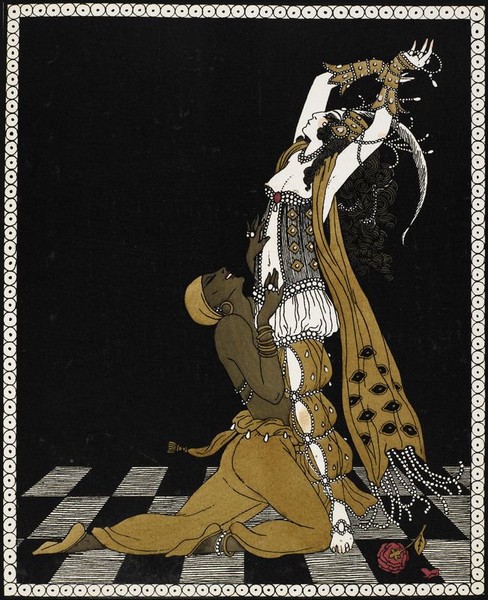
On the afternoon of January 22nd, 1918, Amics de la Música association presented a concert at the Palau de la Música Catalana in Barcelona with this program: the String Quartet No. 5 in E flat Major, by Karl Ditters von Dittersdorf; L'infantament meravellós de Schahrazada, by Robert Gerhard (premiere) and the String Quartet in F major, Op. 96 by Antonín Dvořák (first audition). The Quartet Renaixement was performing with Eduard Toldrà as the first violin; soprano Conxita Badia and pianist Frederic Longàs. Gerhard's first work performance at Palau was a success and both the audience and critics celebrated the talent of such a young composer.
Gerhard was only twenty-one and had been Felip Pedrell's pupil for two years since the war outbreak which terminated his stay at the Musikhochschule in Munich. Teacher and student greatly admired and appreciated each other; That very day, a letter from Pedrell appeared in La Vanguardia newspaper, stating that the premiere in that afternoon was expected to be a great event; he described his student as an "exceptional composer of the Lied-form, born from the intimate relationship with folk song."
L'infantament meravellós de Schahrazada (The wonderful birth of Sheherezade), which delighted Gehard's contemporaries at the Palau, was a twelve-song cycle that had already been performed several times in private houses and, also, in a semi-private performance in a small concert hall named Bell Repòs in December 1917; I guess Gerhard had the feeling that it would be welcomed in its official premiere, but I don't think he was expecting that the piece would be published a few months later; it became his Opus 1.
The song texts were a selection of L'infantament meravellós de Schahrazada. Interpretacions dels poemes de "Les mil i una nits" (The wonderful birth of Sheherezade. Interpretations of "One Thousand and One Nights" poems), by Josep Maria López i Picó, published in 1916 in La Revista, a literary magazine edited by the poet; Gerhard composed the cycle between spring and summer of that year. The subject clearly evokes the Orientalism that had been so in vogue in previous decades, especially in France; Sheherezade had inspired at least two commonly performed works in the repertoire today, Rimsky-Korsakov's symphonic poem and Ravel's song cycle. Gerhard's music, however, didn't reflect Orientalism; it was more clearly identified with a late German Romanticism and traditional Catalan music. Fifty years later, the composer spoke of this work; he was fond of it, an early work whose composition was obvious, but genuine. He explained that his intention had been to make a string of love poems, (he quoted Mozart's Cherubino, “parlo d'amor con me”) and Princess Sheherezade has been just a connection thread, that’s why he ignored Orientalism.
As we listen to the songs, the premiere success is easily understood: Within their cultural context, they were moderately modern, with wide melodies, harmonies full of chromatisms, relatively easy to listen, fresh. Out of the twelve songs included in the cycle, we're listening today to the eleventh, Melodiós com entremig d'arbredes (Melodious as through a grove of trees); which was the eighth in the premiere, the order of that day was different from the edition. It's a short piece where the prelude and the postlude are significant (all in all, they have as many bars as the sung part) and bring us closer the breeze that goes through the four verses. I'm afraid I didn't find an English translation of the poem, so I dared to translate it, sorry about that... The song performers are Isabel Aragón and Àngel Soler.
Twenty years after that concert at the Palau de la Música, when the Nationalist forces captured Barcelona, Robert Gerhard fled to exile. He died in Cambridge on January 5th, 1970. Last week marked 50 years of his death, so this 2020 we're celebrating his music.
passa entremig dels teus cabells l'oreig;
i, com damunt la mar, fa un bellugueig
damunt ton cos amb fregadís de sedes.
the breeze blows through your hair;
and, as over the sea, stirs
over your body with a touch of silk.



 Last we...
Last we...










